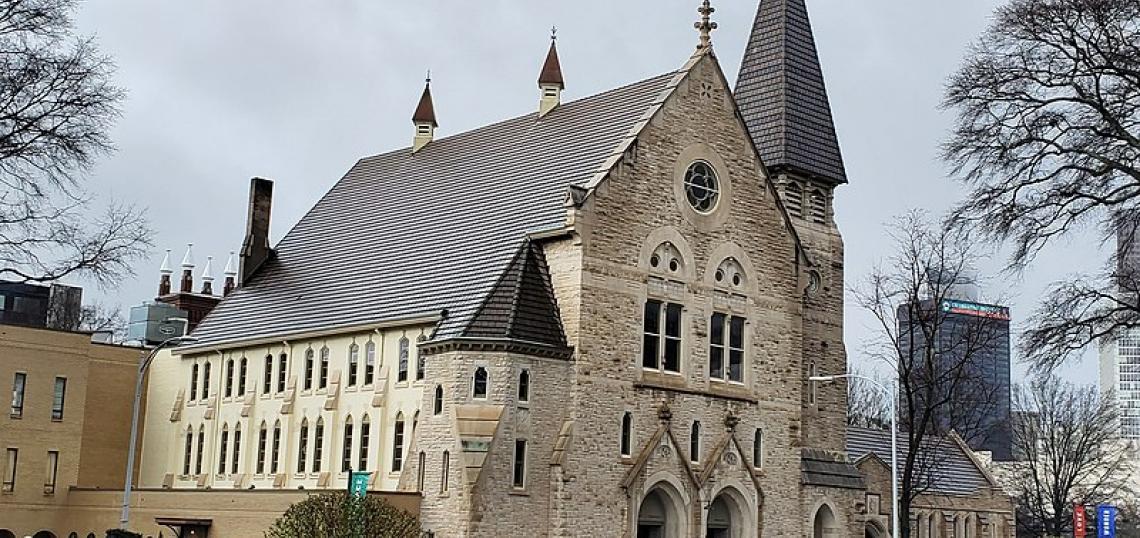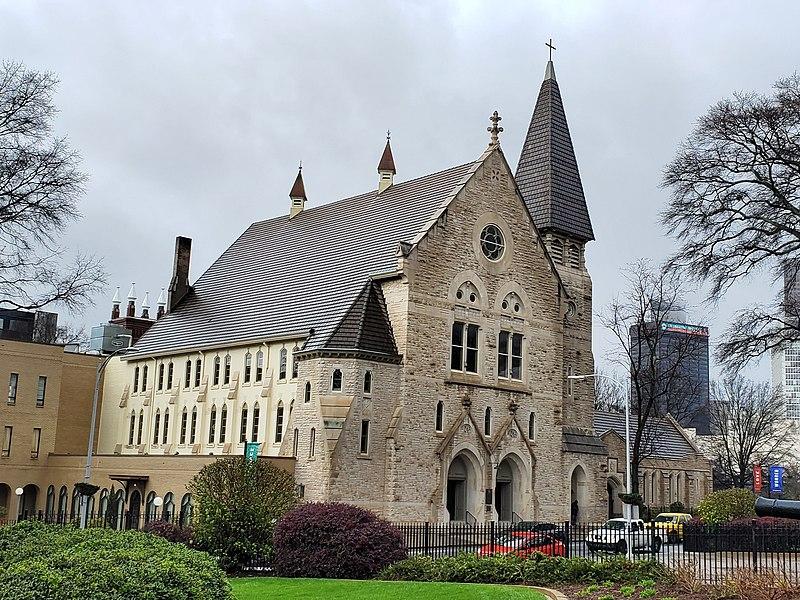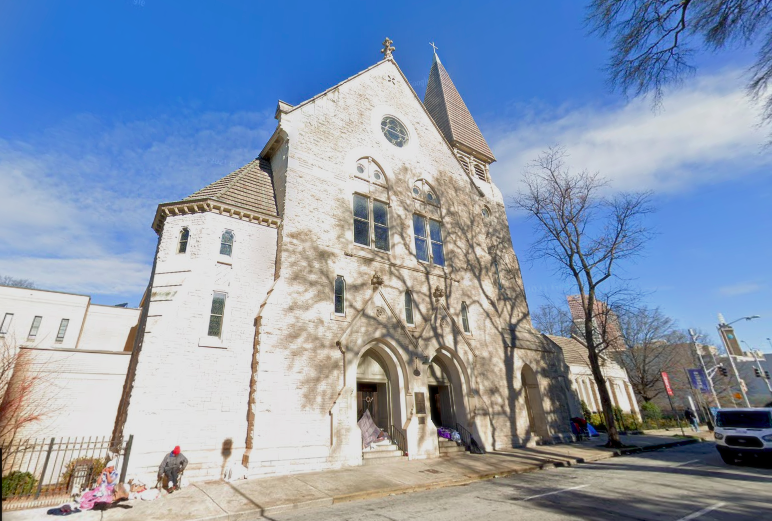With its track record of open-mindedness and serving underprivileged citizens, one of downtown Atlanta’s oldest, most historic churches is floating an offer for developers that congregation leaders hope will lift up the city in a significant way.
Central Presbyterian Church of Atlanta released a Request for Proposals in late October seeking a real estate partner for what church leaders feel could be an innovative project—and a win-win involving transferred development rights.
Given its status as a designated Historic Landmark, a special provision in city zoning ordinances is allowing Central Presbyterian to transfer up to 1 million square feet of unused development rights that could be applied to any suitable property in town.
The logic is that proceeds from the transfer could help the church preserve its downtown buildings, some dating back nearly 140 years, and bolster its mission of service to the community.
The rights could entitle developers to add to existing properties or build anew.
City planner Gary Cornell, president of Community Planning Services and a church representative, says the receiving site has to be within Atlanta city limits and zoned for either mixed-use development or multifamily housing. At least 50 percent of development would have to consist of the latter.
“There are other zoning restrictions in Midtown and Buckhead that may preclude transferring the extra development rights there,” Cornell noted in an email to Urbanize Atlanta.
The church has not set a base cash amount that it’s looking for, but church leaders will evaluate all offers based on “realistic market conditions,” Cornell said.
But instead of a cash sale, Cornell noted, "we might find it attractive to exchange some, or all, of the development rights for a developer to offer outright construction of affordable housing in the city, or land in the city that could be used for [that.]”
Built in the 1880s, the Washington Street church stands across the street from the Georgia State Capitol, in the heart of what’s been envisioned as a “Government District” of lively plazas, eateries, and parklets. The area has struggled with homelessness, particularly since the onset of the COVID-19 pandemic, though the church itself has been sympathetic and encourages efforts toward more supportive housing.
Cornell said no physical changes are planned yet at the church property, where the sanctuary, chapel, gym, education building, and other structures cover most of its 1.08-acre lot. The church’s Outreach and Advocacy Center offers walk-in services for homeless men and women, and the gym often doubles as a shelter on cold winter nights.
Any funds from the sale of development rights would likely be used for expanding community service—or possibly enlarging church buildings or repurposing interior spaces to provide more services, Cornell said.
The deadline for responding to Central Presbyterian’s RFP is December 22.
“We think the long-term possibilities are very good and a real blessing,” said Cornell. “We want to provide hope for our city and its residents who’ve struggled with an acute shortage of affordable housing. Ultimately, we’ll use the proceeds for the glory of God and service to our neighborhood.”
• Recent downtown news, discussion (Urbanize Atlanta)








